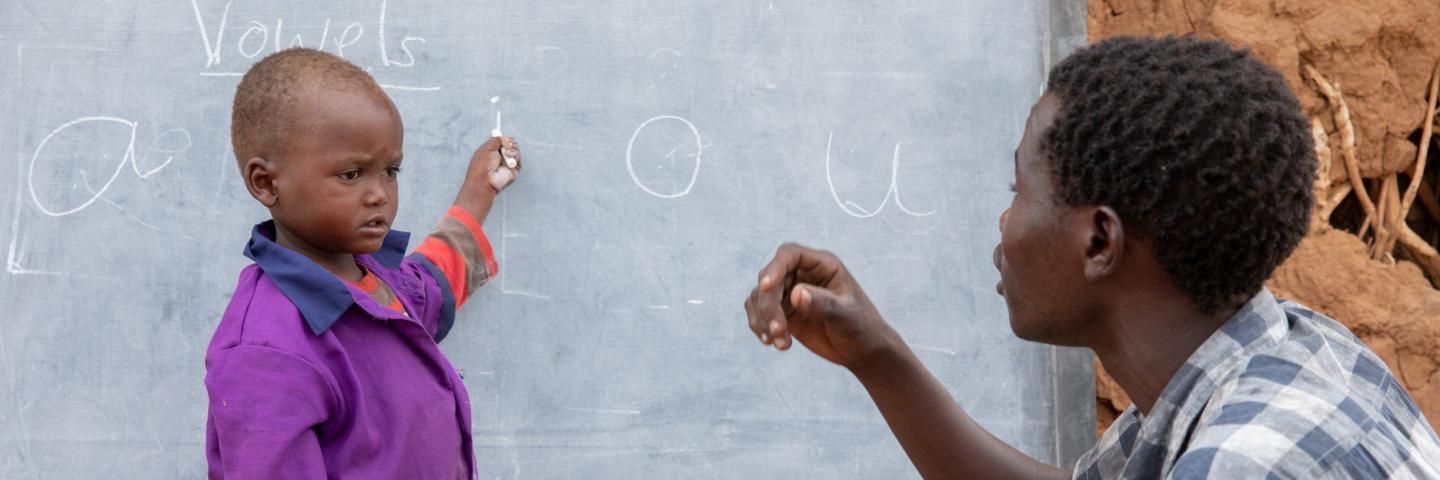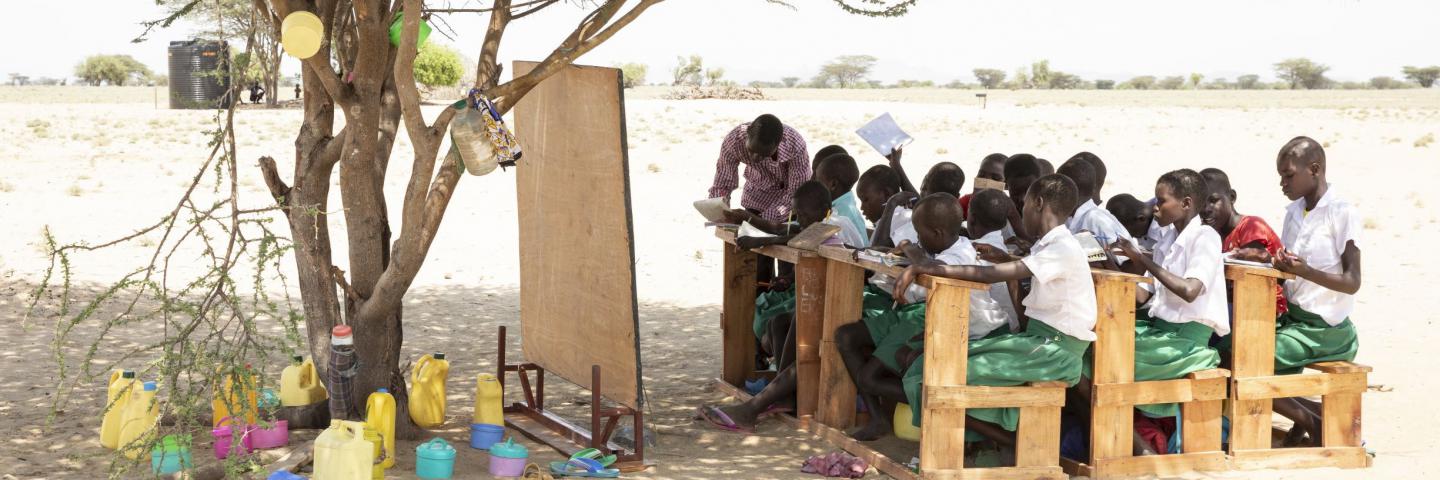

We help young children access education by providing Early Childhood Care and Development (ECD) services that allow them to develop literacy and maths skills through play. Research shows that in Kenya children aged 0 to 5 years do not access a holistic package of ECD and estimated 16 percent of children nationally do not attend pre-school. Also only 4 out of 10 class three pupils are able to do class two work while 11 percent of children cannot recognise numbers.
We also support children in Dadaab refugee camp, that are not in school, to access primary education through the Alternative Basic Education centres. Moreover, we co-lead the Education in emergencies cluster, with UNICEF, working closely with the Ministry of Education and contribute to national policy development and reform.

Our interventions include:
Ready to learn approach
We have come up with a ready to learn approach to better work with ECD. Through the approach, we are working with the National and county governments to plan and allocate additional resources for ECD. This is expected to enhance the provision of quality ECD services by providing training and guidance on how to develop literacy and numeracy skills, and ensure proper utilization of appropriate and cost-effective ECD materials. The government is expected to provide ECD teacher training which will ensure inclusive and equitable quality education and promote lifelong learning.
Ready to learn approach will also provide new evidence to guide its implementation and policy.
Building brains
Building Brains leverages proven implementation experience and integrates the latest science and evidence into future programming. It is based on evidence on how to solve a particular problem for children to promote children’s development from birth to age three to support caregivers to provide early stimulation and responsive care.
It supports girls and boys ages 0-3 years to demonstrate cognitive, socio-emotional, motor development and communication as a result of responsive caregiving and early simulation.